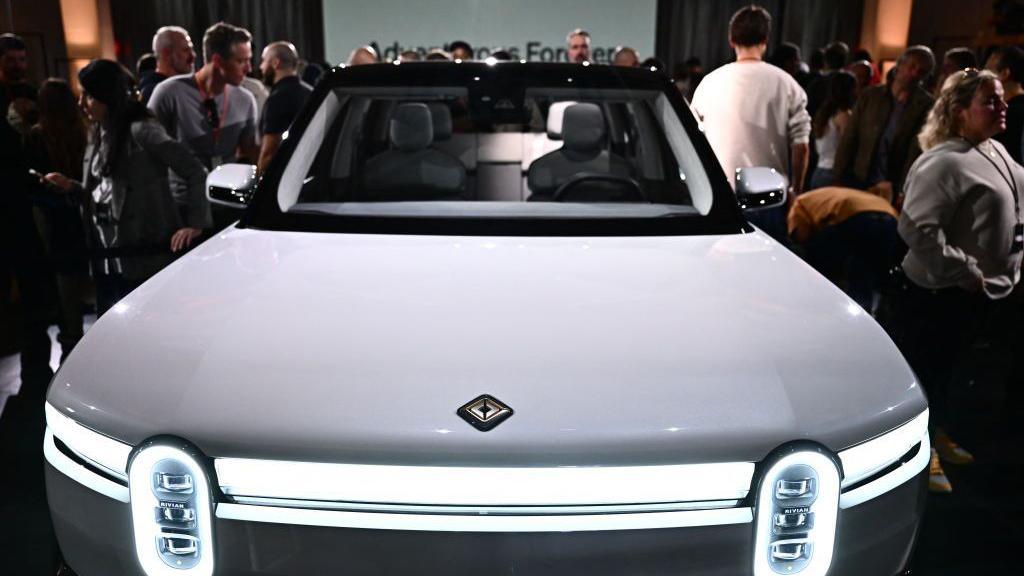VW launches $5.8bn tie-up with Tesla rival Rivian

The two firms will share EV technology at a time of slowing sales growth
- Published
Volkswagen Group (VW) and Tesla rival Rivian have launched a joint venture, with the German car giant increasing its investment in the partnership.
The two companies say the deal is now worth $5.8bn (£4.55bn) - up from an initial pledge from VW of $5bn.
Shares in the US electric vehicle (EV) maker jumped more than 9% in after-hours trading following the announcement.
The tie-up will see the firms sharing critical technology at a time of slowing sales growth for electric cars and increased competition from Chinese rivals.
The joint venture provides loss-making Rivian with a crucial source of funding as it prepares for the launch next year of its R2 model - a sports utility vehicle (SUV) that is smaller and more affordable than its current offerings.
It also means VW will be able to use Rivian's technology in its own range of vehicles.
The first VW models equipped with Rivian technology are expected to be available to customers as early as 2027.
"By combining their complementary expertise, the two companies plan to reduce development costs and scale new technologies more quickly," the two companies said in a statement.
Under the plan, developers and software engineers from both firms will initially work side by side in California, while three other facilities in North America and Europe will be set up.
It comes as expectations have grown that VW, Europe's biggest car maker, is planning to announce major cost-cutting measures.
The group, which also includes brands such as Audi, Lamborghini and Porsche, has been struggling with higher costs, weakening sales, competition from Chinese EV makers and a slower-than-expected move away from petrol and diesel vehicles.
Separately, Rivian has taken steps to cut costs amid softening demand for EVs.
The startup, which has yet to turn a profit, has been renegotiating contracts with suppliers and making its manufacturing processes more efficient.
As well as SUVs, Rivian also makes electric delivery vans, which it supplies mainly to online retail giant Amazon - its largest shareholder.
Amazon has ordered 100,000 of the vehicles, which are all due to be delivered by the end of the decade.